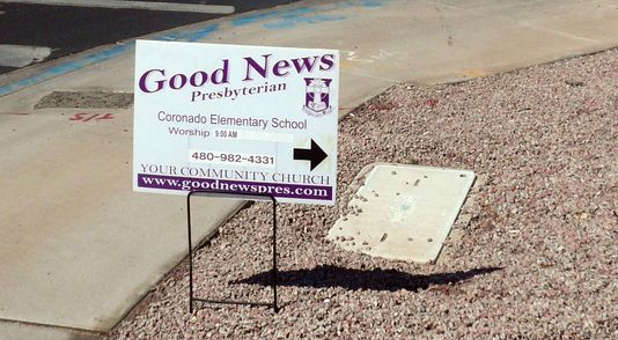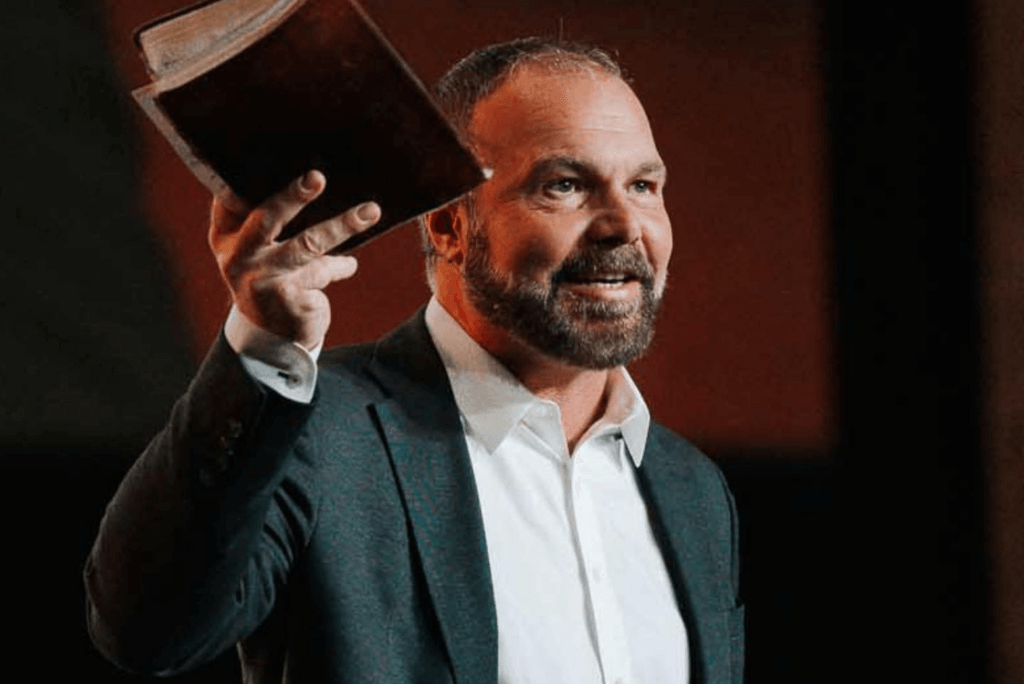The U.S. Supreme Court will soon take up a lawsuit by a small church in Arizona over restrictions on its signs.
Good News Presbyterian Church in Gilbert, Arizona, lives on a shoestring. Its Sunday services are held at a senior center. In the past, it used an elementary school.
The church, which has only a couple of dozen members, is heavily dependent on signs posted around town that advertise its service hours and location. Under Gilbert’s sign code, those temporary directional signs are dwarfed by others that can be much larger and stay on public property much longer—political campaign signs, for instance.
For six years, the church and its pastor, Clyde Reed, have waged a legal battle against the town for equal treatment. Its free-speech claim is that non-commercial signs should be treated similarly. Although political signs can be 32 square feet and stand for up to five months in some cases, the church’s signs are limited to six square feet and only can be up 12 hours before each service.
Though the dispute focuses only on a town sign code, the church’s lawyers from Alliance Defending Freedom, which focuses on religious-freedom issues, say it applies to billboards, news racks, picketing, cable broadcast signals and video games.
The town says the restrictions are due to the reasons for posting signs—and elections are different from directions.
The U.S. Court of Appeals for the 9th Circuit sided with the town in a divided ruling.
Judge Paul Watford, who was named to the bench by President Obama and is a potential Supreme Court nominee, dissented. He noted that the time limitation on Good News’ signs relegates them mostly to darkness.
The town treats political and ideological speech as more valuable, Watford said, “and therefore entitled to greater protection from regulation than speech promoting events sponsored by non-profit organizations. That is precisely the value judgment that the 1st and 14th Amendments forbid Gilbert to make.”
The Supreme Court has been particularly sensitive to the perception that religious speech is discriminated against, said Paul Smith, chair of the Supreme Court and appellate practice at Jenner & Block. That could mean good news for Good News Presbyterian.
Richard Wolf writes for USA Today.
Copyright 2014 Religion News Service. All rights reserved. No part of this transmission may be distributed or reproduced without written permission.
See an error in this article?
To contact us or to submit an article





















